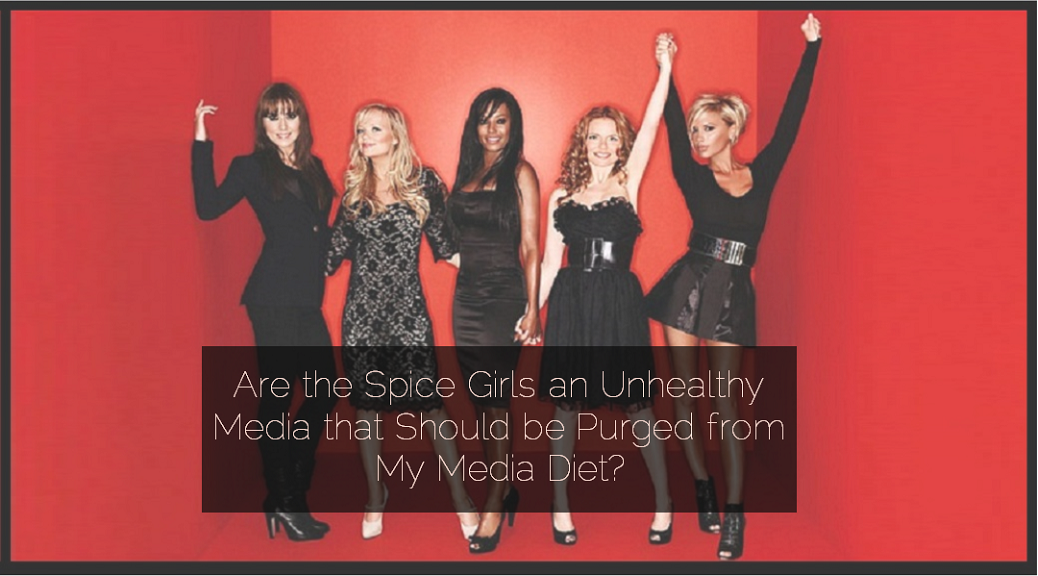The rumours that were floating around last week about a potential Spice Girls reunion made me of course reach for my cassette tape and pop in their tape navigate to Emi Music’s YouTube page.
As I worked along to the infectious rhythms of the girl bands’ various songs, I sent the link to the “Spice Up Your Life” video clip to a couple of my friends. Most of them laughed and spent the rest of the day listening to 1990s pop music. But one of them challenged me—in the most fruitful kind of way. Having read last week’s post questioning if there is such a thing as a healthy consumption of unhealthy media, he pointed out that there is nothing healthy about the messages contained in either the way of life the Spice Girls represented nor in their music, and that someone who believes in the things that I do—man’s innate spiritual nobility, detachment, material and spiritual progress, equality of men and women—shouldn’t like them.
He was completely shocked when I immediately agreed that there is, indeed, a seeming dichotomy between what I believe in and what the Spice Girls represent. I don’t think the girls are role models. I don’t think they represent girl power. The lyrics of their songs make little to no sense to me. And while they are good singers and dancers—much better than me, actually—they do not seem talented enough for me to chalk up their popularity to a set of amazing singing or dancing skills.
But the thing is, they are fun. And they did work hard to get where they are. Yes, they also were lucky to be hired as part of the band, and the massive marketing machine they were shoved into really helped launch them into the stratosphere, but their schedules were quite grueling.
This goes back to the question: can we have a healthy consumption of unhealthy media? Is my knowing that I love the Spice Girls for no other reason than they are fun and remind me of some really great times enough to counter the negative things that they stand for?
Sorry guys, but I don’t know the answer to that! But I do think that if there is such a thing as healthy consumption of unhealthy media, it has to start with honesty. I shouldn’t hide behind any excuse to allow myself to like the Spice Girls; knowing what I am exposing myself to is essential to either being able to consume the media in a healthy way, or be able to counter the unhealthiness of said media.
This is where the conversation is at its most important, and yet, tends to get very messy, as guilty pleasures bring up walls of defensiveness. I tried engaging a couple of friends in a conversation about the Spice Girls this week, and some of them completely shut me down. One of them was wonderful enough to get back in touch me to share how sensitive she found these conversations. “As someone who considers herself a feminist,” she told me, “being told that something I love to much—the Spice Girls—goes counter to my beliefs makes me feel like a hypocrite.”
And this is the relationship we have to break. We have to realise that, for example, liking the Spice Girls and being a feminist are not an example of hypocrisy. Rather, it offers a great opportunity for discussion which created an environment for constant improvement. So yes, I love the Spice Girls. Yes, what they represent goes against a lot of what I believe in. And yes, I will continue thinking about what I should do about it, unapologetic about how I feel about the girl band. Hopefully this will help contribute to the very important discourse of the effect of media consumption and the emergence of a healthy relationship between it and us.
Until then, spice up your life, readers.

